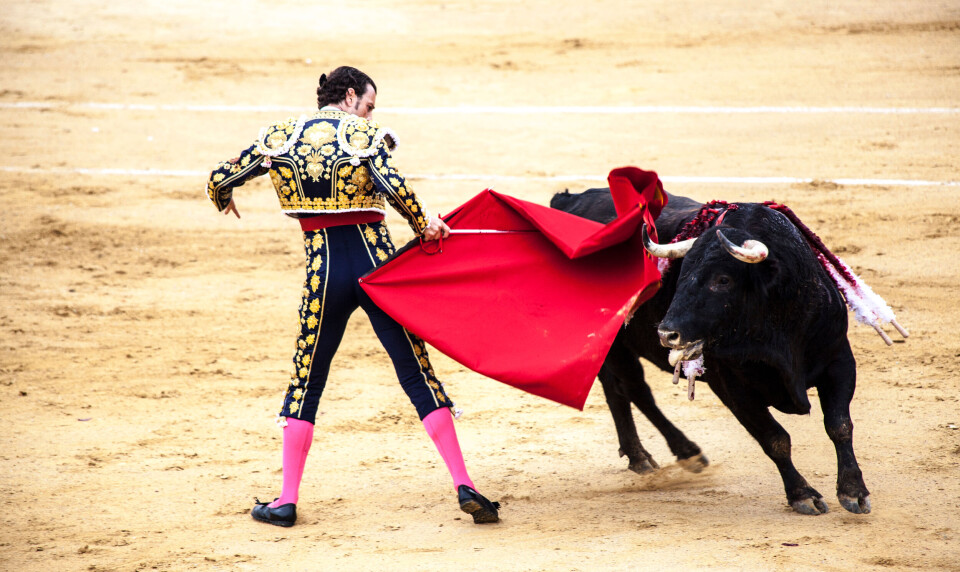-
Germany to prolong EU border checks: how travel from France is affected
Checks at land borders will take place until at least September 15, 2026
-
Floods in France: emergency measures underway amid ‘historic’ conditions
Gironde, Lot-et-Garonne and Maine-et-Loire among worst-hit with red warnings in place
-
Mardi Gras: 12 traditional carnival sweet treats to try in France
Gaufres, bugnes, merveilles and more
Majority of French MPs expected to back anti-bullfighting bill
The Assemblée nationale will study its first ever anti-corrida bill on November 24. The Connexion looks at how likely it is to be adopted

[Update November 15 at 16:20 - The government is reportedly expected to oppose the bill, according to an unnamed source.]
Corrida bullfighting could be made illegal in France as far-left party La France Insoumise (LFI) prepares to present a bill looking to ban it before the Assemblée nationale. A majority of MPs are expected to vote in favour of such a ban.
The bill seeks to change one of France's penal codes, and in particular a section which exempts corridas from being classed as animal abuse.
It will be brought forward on November 24 by LFI MP Aymeric Caron, a former high-profile journalist and a staunch ecologist, during the party’s ‘niche parlementaire’, a 24-hour period every month in which opposition parties can be heard on as many bills as they can present in that time.
Mr Caron’s bill is currently fourth in a list of 12 brought forward by LFI. It will be the first time in French politics that an anti-corrida bill has been discussed within the Assemblée nationale hemicycle.
The Connexion contacted Mr Caron for comment but has not received a response.
Read also: French parliament to debate banning traditional corrida bullfighting
‘Already historic’
“The simple fact of it being discussed is already historic,” said Thierry Hély, president of the Fédération des luttes pour l'abolition des corridas (FLAC), an organisation which opposes bullfighting.
There have been many MP attempts to bring the issue to Parliament in the past, “but this time does not seem like those in the past,” he added.
The bill has a strong chance of being passed, as the Assemblée nationale’s president Aurore Bergé – a member of government coalition party Renaissance – did not give voter orders to affiliated MPs, meaning that each member can vote for or against it without fearing going against party line.
Ms Bergé is among more than 100 French political personalities to have signed an anti-corrida petition from the Fédération des luttes pour l'abolition des corridas along with more than 100 other personalities from the media and arts industries.
Rassemblement national’s (RN) Marine Le Pen, who presides over the party’s group of MPs in the Assemblée nationale, did not give voter orders either.
Ms Le Pen is known to be against bullfighting, having said she would have abolished it if she had been elected president during the latest presidential election.
Almost all MPs from the left-wing Nupes coalition are expected to vote for a ban, the proposition being listed among the 650 brought forward by the newly-formed legislative coalition last May.
Mr Hély told The Connexion he hopes the bill could be placed higher on the list, and is joined in this by the animal rights charity Fondation Brigitte Bardot.
Position in debate agenda could mean bill not heard
Both the foundation and Mr Hély fear that the fourth place attributed by LFI to the bill could mean that it suffers from filibustering, a political tactic that looks to drag on unnecessary debates to delay legislative procedure. This could mean that the Assemblée nationale fails to come round to the bullfighting bill before the 24-hour session closes.
Mr Caron is planning on starting his intervention by quoting the first lines of ‘La Corrida’, one of France’s best known songs, where composer Francis Cabrel writes from the bull’s perspective, according to a first draft version of the text published on the Assemblée nationale’s website.
Corrida is a Spanish form of bullfighting which typically results in the animal’s death. It still takes place in large arenas in French towns such as Nîmes, Dax, Arles and Béziers.
In 2020, the Court of Appeal of Toulouse ruled that the tradition exists in much of the south, including Provence, Languedoc and the Basque Country.
The bill comes after a poll* suggested that 81% of French people oppose bullfighting.
However, those who support bullfighting remain active in politics and the press. Minister of Justice Éric Dupond-Moretty is one of the strongest pro-corrida voices in the government, along with Agriculture Minister Marc Fesneau and others.
Actors Édouard Baer, Thierry Lhermitte, Gérard Jugnot and Philippe Caubère are among celebrities who signed a pro-corrida petition in 2012.
Arguments in favour often cite tradition and the benefit to the economy.
There are also other, less violent traditions.
In a course camarguaise, participants attempt to remove ornaments placed between the bull’s horns. The course landaise consists of trying to dodge horned cows.
Defenders of the corrida say it is an essential part of the feria festivals which attract millions of visitors to southern France.
“France is lagging behind the UK in terms of animal rights,” said Mr Hély, in a reference to a letter of complaint he sent to the mairie of Béziers in 2010 when the council of its twinned town of Stockport asked the French city to ban bullfighting.
The council wanted the southern French city to follow the example of Catalogna, which recently banned corrida.
*Poll carried out by polling institute IFOP for the Fondation Brigitte Bardot, involving 1,019 French people aged 18 or over through a questionnaire on August 24 and 25, 2021.
Related articles
French woman says she was ‘treated like criminal’ after saving a boar
Animal rights candidate lacks support to stand in French election
























